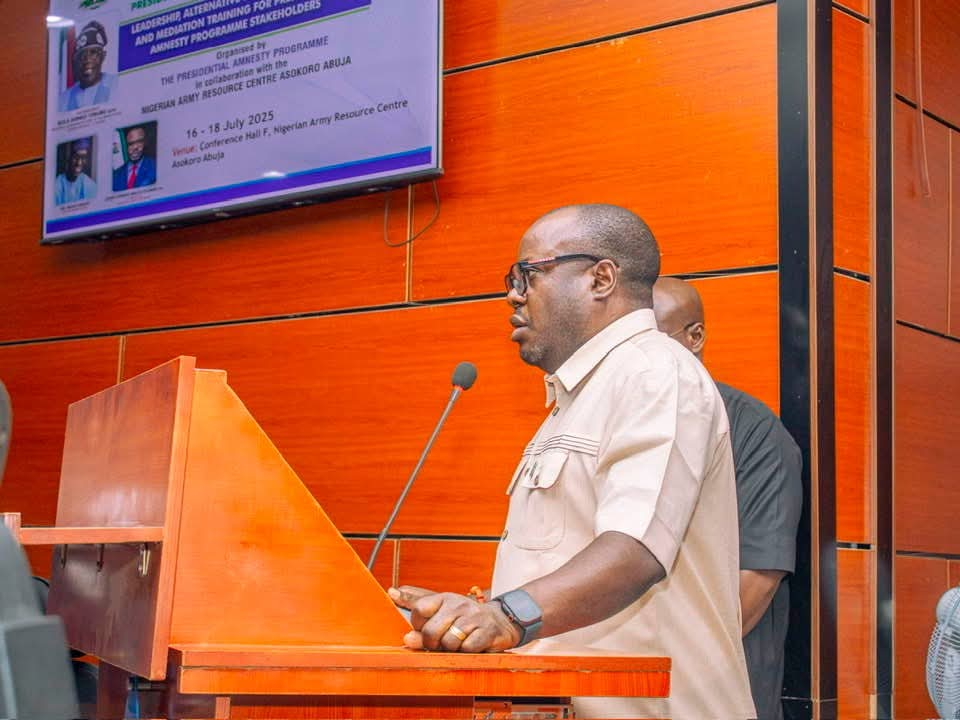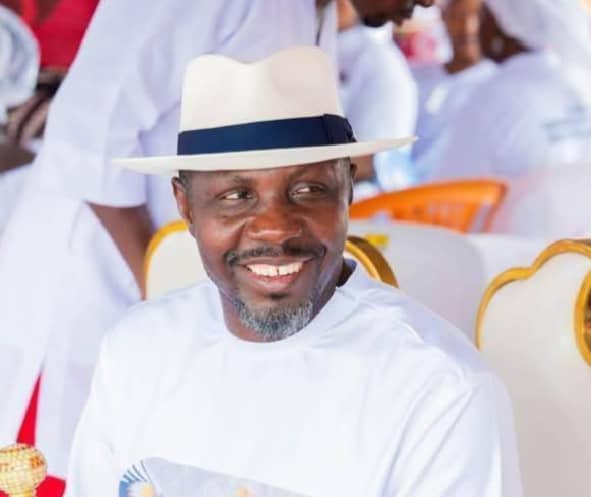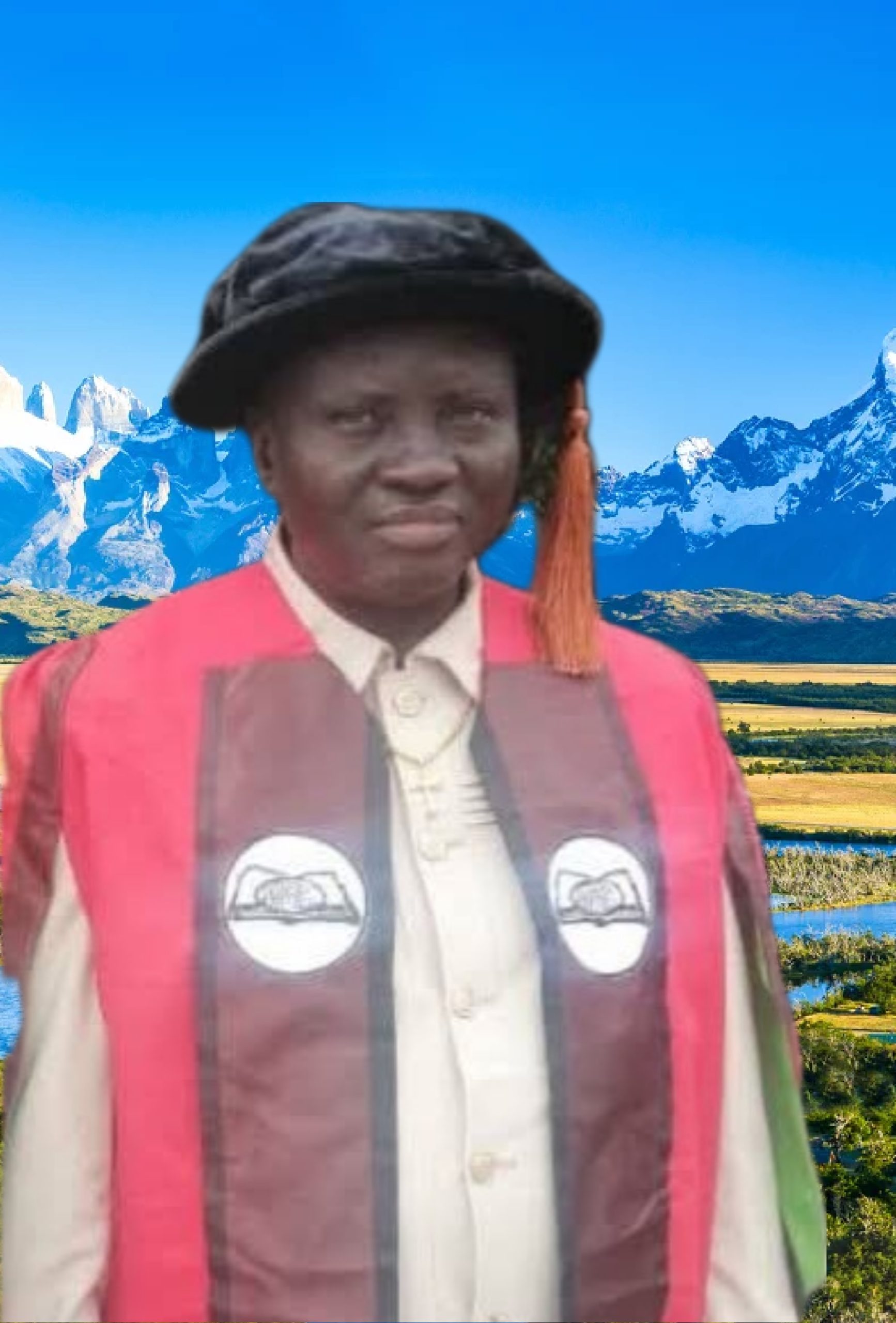Columns
VeryDarkMan: A pain to many

VeryDarkMan: A pain to many hi
hi
By Benjamin Njoku
His name didn’t ring a bell with some social media users before now. But suddenly, Martins Vincent Otse popularly known as VeryDarkMan ,VDM, has become a formidable force in the Nigerian digital space.
In fact, the fear of VDM is the beginning of wisdom, as many of his victims, whom he has dragged on social media platforms for one reason or the other, will live to tell their stories in a hard way.
For some, VDM is a refreshing and fearless crusader, while others see the Edo state born social media activist as an enemy of society,who’s propagating hate, provocation and intolerance. But like him or hate him, VDM remains the new conscience of the society, whose mission is to fight against injustice no matter whose ox is gored as well as helping others. Since his emergence on the digital space a few months back, VDM has fought many fearless battles, stepped on many toes and ended up cooling his feet in the police custody.
His boldness has earned him a large following on social media, having been using his platform to speak out against social injustices and hypocrisy. Though his modus operandi may have been called into question, with many accusing him of normalizing hate and toxicity. But VDM is highly unrepentant of his provocative videos, statements and commentaries on social media.
One of his most recent and widely publicized confrontations was his battle with Prophet Jeremiah Omoto Fufeyin, founder and head prophet of MercyLand Deliverance Ministry, Warri, Delta State. His feud with the Prophet stemmed from the commercialization of religious items, with VDM accusing Jeremiah of exploiting his followers by selling items such as miracle water and soap which he claimed could perform miracles.
The clash quickly escalated, drawing supporters and detractors from both sides, to a point that the prophet threatened a N1bn lawsuit against the popular social critic, which he later dropped, after VDM stormed the National Agency for Food and Drug Administration and Control (NAFDAC) office, where he filed a complaint against Prophet Jeremiah’s products. Eventually, the clergyman was forced to reverse his decision to sell his popular miracle water and soap to his church members again.
VDM’s latest battle, which is currently making headlines has do with the viral audio he released on Instagram days back, where the controversial cross-dresser Bobrisky was said to have bribed some unnamed EFCC operatives with N15 million to drop money laundering charges against him, prior to his being sent to prison for abuse of the naira.
The allegation has since gone viral, drawing the attention of both the government and the different professional bodies and agencies, including the EFCC, who has constituted a team of investigators to look into the allegations.
This is even as popular rapper, Folarin Falana, aka Falz and his human rights lawyer-father, Femi Falana, who are also joined in the saga have threatened legal action against the fearless VDM. Both father and the son are demanding a retraction within 24 hours of VeryDarkMan’s remarks insinuating that Falz and his father were going to procure presidential pardon for convicted Bobrisky. However, responding to the threat, VDM denied defaming Femi Falana, saying “Uncle Femi Falana is someone that I respect 100 per cent, not because of his position as a SAN but because of what he has used the position to do, representing people like me that speak against ills in the society”. On Falz, VDM said, ”I expected you to address your letter to Bobrisky that called your name in that recording and not to me. I did not defame you”
Not long ago, VDM also called out the likes of Iyabo Ojo, Tonto Dikeh, Ashumsy among others that sparked uncontrollable reactions on social media. In the case of Ashumsy, a social media influencer who received N1 million from a small businessman for advertising services but failed to deliver, VDM called her out on social media, which forced her to return the money unconditionally, while crying and begging the social crusader to let her be. Indeed, many are wondering about the role VDM has assigned to himself as another Shakespare’s ‘Daniel’ in Merchant of Venice that has come to judgment.

Columns
Chief Denis Otuaro, the Guiding Star of PAP

By: Professor Binebai
The Niger Delta has found a beacon of hope in Chief Dr. Dennis Otuaro, a leader of unimpeachable integrity, courage, and vision. As the helm of the Presidential Amnesty Programme (PAP), he has emerged as a champion of transformation, inspiring a region and a nation with his unwavering commitment to empowerment and progress.
In the realm of Nigerian leadership, there are those who leave an indelible mark on the sands of time, and Chief Dr. Dennis Otuaro is one such luminary. As the helm of the Presidential Amnesty Programme (PAP), he has etched a narrative of hope, redemption, and triumph, illuminating the path for the people of the Niger Delta. This tribute is a celebration of his extraordinary leadership, vision, and unwavering commitment to the cause of empowering the youths and transforming the region.
Chief Denis Otuaro’s stewardship of the Presidential Amnesty Programme (PAP) has indeed been a renaissance, a majestic sunrise after a long, dark night, as he infuses the initiative with the radiance of a new dawn.
Like the mythical Anansi, the wise and cunning spider of West African folklore, Otuaro’s leadership has woven an intricate web of hope and opportunity, capturing the challenges of the Niger Delta and transforming them into a rich mosaic of promise and progress. His vision, akin to that of the venerable Oracle of Delphi, has deciphered the complexities of post-conflict reconstruction, guiding the demobilised youths through the labyrinth of uncertainty, and into the bright light of empowerment and redemption.
Otuaro’s journey has been sustained by a resolute commitment to the cause, his leadership style a masterful blend of courage, wisdom, and compassion. His tenure has been marked by a symphony of progress, as the PAP, under his guidance, has orchestrated a harmonious balance of pacifism and pragmatism, transforming the region into a veritable Garden of Eden.
Like Athena, the Greek goddess of wisdom, Otuaro wields the power of transformation, his touch turning the arid landscape of despair into a lush oasis of hope and prosperity. His leadership has become a byword for sagacity, a testament to the transformative power of vision, courage, and compassion.
In the pantheon of Nigerian leaders, Otuaro’s name shall be etched alongside the greats, his legacy a shining testament to the indomitable human spirit, as he continues to weave a new narrative of hope, redemption, and triumph for the people of the Niger Delta.
The Niger Delta has found a leader of repute, a leader of courage, a leader of transformation, a leader of goodwill in the PAP. Let egocentric economic buccaneers and demonic agencies stop their campaign of calumny against this leader of glory.
To those who seek to undermine his efforts, we say: let envy and malice be silenced! Let the progress of the Niger Delta be the benchmark for greatness! Let Otuaro’s leadership be the inspiration for a new generation of leaders!
Columns
A Legendary Legacy: The Enduring Odyssey of High Chief (Dr.) Government Oweizide Ekpemupolo

By: Professor Ben Binebai
In the realm of Nigerian leadership, one name resonates with mythical significance – High Chief (Dr.) Government Oweizide Ekpemupolo, affectionately known as Tompolo. Born on 12 April 1971, in Warri, Delta State, Tompolo has etched his name in the annals of history, leaving an indelible mark on the Niger Delta region. As a former militant commander of the Movement for the Emancipation of the Niger Delta (MEND) and chief priest of the Egbesu deity, he has navigated the treacherous waters of war and peace, leveraging his remarkable journey to bring succour and development to his people.
Tompolo’s metamorphosis from a militant leader to a peace advocate is a testament to his unwavering commitment to the progress of the Niger Delta. His decision to embrace the Amnesty Programme in 2009 marked a turning point, as he laid down arms and picked up the mantle of transformation. Today, he is revered as a hero, celebrated for taming the turbulent waters of the Creek boys and settling major political crises in the region. By putting the Ijaw image on the Nigerian map, Tompolo has redefined the narrative, showcasing the rich cultural heritage and resilience of the Ijaw people to the world.
A nationalist and statesman emerging from the boiling pot of agitation in the Niger Delta, Tompolo has consistently demonstrated his commitment to the development and progress of his people. His agency operates in close collaboration with the government, working tirelessly to implement projects and initiatives that benefit the Niger Delta region. His leadership style is characterised by quiet strength, strategic thinking, and an unwavering commitment to the progress of his people. His efforts have earned him recognition and accolades from various quarters, solidifying his position as a dependable pillar of the Ijaw nation.
As the last voice of the Ijaw nation, Tompolo’s legacy continues to inspire hope and progress for generations to come. With institutions established for national economic stability and prosperity, his impact will be felt for years to come. Tompolo’s story serves as a beacon of hope and resilience, inspiring his people to strive for greatness.
God bless this emergent leader of the Ijaw nation.
Columns
YOUNA: WARRI CRIES FOR PEACE AND JUJUSTICE

By: Ben Binebai
In the Niger Delta region of Nigeria, a city cries out for peace, justice, and unity. Warri, a land of rich cultural heritage and economic significance, has been plagued by recurring crises, sparked by provocative actions and claims of ownership by the Itsekiri group. The cry of Warri is a call to action, a reminder that our diversity is a strength, not a weakness, and that our common humanity is worth fighting for.
The Ijaw, Urhobo, and Itsekiri communities have coexisted in Warri for centuries, sharing a rich cultural heritage and a deep connection to the land. Occasionally uniting but deeply disunited because power and hegemony have often overshadowed their shared humanity, the people of Warri yearn for a future where their differences are celebrated, and their commonalities are the foundation of their unity. Warri’s significance extends beyond its current boundaries, as it has been a hub of economic and cultural activity for centuries. Before 1952, Warri was a thriving commercial centre, with the Ijaw, Urhobo, and Itsekiri communities contributing to its growth and development.
The city’s strategic location and access to the Niger Delta’s vast resources made it an attractive location for trade and commerce. Understanding Warri’s rich history and cultural heritage is essential to finding a lasting solution to the crisis.
It is time for truth to prevail to offer a lasting solution to the Warri crisis. The canoe of godfatherism should be withdrawn for the rule of law and for peace and progress to triumph.
The lie of exclusive ownership of Warri resists termination due to several factors, including:
Outdated court judgments: The Itsekiri establishment continues to rely on outdated court judgments, such as the 1925 judgment, to support their claim of ownership, despite subsequent judgments repudiating its validity.
Lack of political will: Successive governments have failed to address the problem and take the right and just decision, allowing the crisis to persist.
Absolutist claims: The Itsekiri claim is absolutist, while the Urhobo and Ijaw claims are limited, recognising ownership of portions of Warri by other communities.
Historical narratives can be deeply ingrained*: People’s understanding of their history and identity can be shaped by long-standing narratives, making it hard to change their perspectives.
Emotions and biases can override facts: When emotions and biases are strongly tied to a particular narrative, people may resist changing their views, even in the face of contradictory evidence.
Power dynamics can influence narrative control: Those in positions of power may use their influence to shape and maintain certain narratives, making it harder to correct lies and misconceptions.
Moreover, leadership plays a crucial role in shaping the future of Warri. As the saying goes, “When leaders refuse to embrace sacrifice, society dies.” Leaders who prioritise the greater good, make tough decisions, and invest in the future can help build a more harmonious and prosperous society. It is time for the leaders of Warri to put the needs of their people first and work towards a brighter future.
The cry of Warri is a call to action, a reminder that our diversity is a strength, not a weakness. Let us work towards a brighter, more harmonious future, where the beauty of our differences is celebrated, and our common humanity is cherished. May the cry of Warri be heard, and may we rise to the challenge of building a better tomorrow for all its people.

